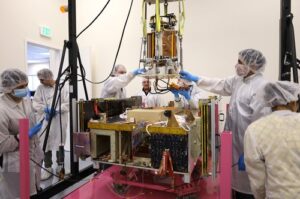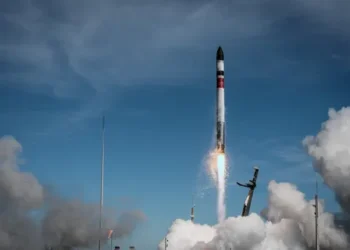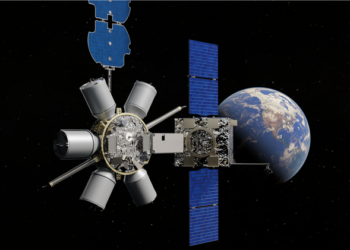Momentus looks to picosatellites, cislunar space for growth
Company remains ambitious after Q1 $21M loss
On the heels of first-quarter losses of $21 million, in-space transportation company Momentus (NASDAQ: MNTS) on Monday announced an agreement with Italian telecommunications company Apogeo Space to provide orbital transportation services for nine of Apogeo’s picosatellites, which weigh less than 1 kilogram.
Apogeo is planning a 100-satellite constellation that will deliver global Internet-of-Things services beginning the second half of this year, according to a release. The value of the contract was not disclosed, but the Sacramento, Calif.-based Momentus said in a statement that it’s looking to new customers to help improve its margins.
The global miniaturized satellite market, which includes picosatellites, as well as nanosatellites, which weigh between 1 kilogram and 10 kilograms, is projected to generate nearly $16 million in cumulative revenue from 2022 to 2031, according to a June 1 report by market research firm Research Drive.
Picosatellites are relatively inexpensive, ranging from $107,000 to $130,000, according to Madrid-based satcom provider Fossa Systems, which in January signed a similar agreement with Momentus.
Strategic collaboration

In addition to Apogeo and Fossa, Momentus also recently announced a collaboration with Columbia, Md.-based aerospace company Axient to develop technologies for all orbit ranges, including cislunar space.
The cislunar communications market is projected to reach cumulative revenues of $2.4 billion from 2022 to 2032, Prachi Kawade, senior analyst at research firm Northern Sky Research, told Connectivity Business News. A January report by NSR noted that the in-orbit services market is projected to generate $14.3 billion in cumulative revenues by 2032.
The Axient agreement is about the exchange of ideas and combining technologies to enhance service capabilities beyond low Earth orbit, and has no monetary value, a Momentus spokesperson told CBN.
“Momentus is always looking for strategic collaborations that we think will help deliver good results for customers,” the spokesperson said.
Axient will use Momentus’ Vigoride Service Vehicle to support in-space assembly, testing and integration, according to a release.
Longer missions
Momentus has three service vehicles in orbit, the newest being Vigoride-6, which launched in April via SpaceX rideshare, the spokesperson told CBN.
Momentus last month announced it had achieved the first orbital raise of its Vigoride-5 service vehicle using a water-propelled Microwave Electrothermal Thruster (MET), which works by generating hot plasma from a solar-powered energy source that generates thrust by heating the propellant, according to a release.
The water-based propellant makes the MET more sustainable, the spokesperson told CBN, particularly for lunar missions where water on the moon can be used for refueling.
“Right now, the vehicles are not reusable, but we do have reusability on our technology roadmap for the future,” the spokesperson said.









